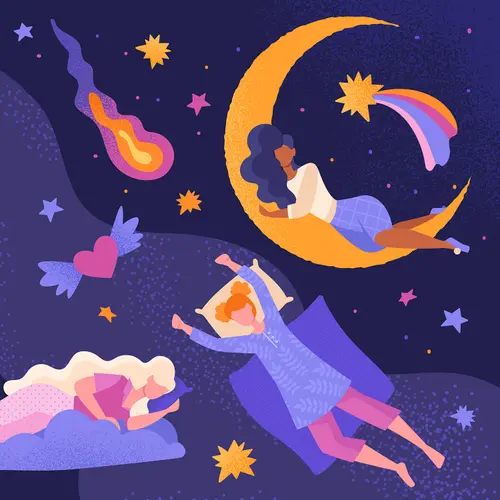When it comes to myths about sleep, this one refuses to nod off -- and stay asleep. Contrary to popular opinion, older people don't need less sleep than the average person. In fact, adults require about the same amount of sleep from their 20s into old age, although the number of hours per night varies from person to person. But many older adults get much less sleep than they need, for a variety of reasons.
Sleep problems and seniors
Harry Gaertner, a retiree from Richardson, Texas, remembers first being extremely tired and having difficulty sleeping six years ago. "I had to have 10 hours of sleep and an hour nap every day," he recalls. Gaertner's wife also noticed he was snoring heavily. A trip to the doctor resulted in a sleep apnea diagnosis and a CPAP (continuous positive airway pressure) machine. But Gaertner says, "the machine didn't work, so that meant something else was wrong."
A trip to the ER revealed what that something else was: Gaertner needed a pacemaker to correct his heart rhythm. He now has a guaranteed pulse of 60 beats per minute, which helps him sleep and breathe easier. But Gaertner's heart issues were only partially to blame for his restless nights. He still suffered from sleep apnea, so he resumed use of the CPAP machine and now dozes more comfortably than he has in years.
Many seniors don’t get enough sleep because of insomnia. It can be just as debilitating as the poor sleep that comes with sleep apnea.
"Insomnia is more common for seniors, partly because of health issues, partly because of the anxiety and the concerns of aging, and sometimes because of medication," says Jack Gardner, MD, a neurologist certified in sleep medicine at Baylor Scott & White Medical Center in Waxahachie, Texas. Gardner adds that the likelihood of sleep apnea and restless legs syndrome also increases with age. Frequent urination and the pain from arthritis are more common, too, and rob sleep from seniors.
Another reason for senior snooze troubles lies in a big difference between younger and older sleepers: the timing of rest. As adults age, advanced sleep phase syndrome sets in, causing the body's internal clock to adjust to earlier bed and wakeup times. But some seniors continue to stay up late, as they did in their younger years. Sleep deprivation is often the result.
Bottom line: It's important to address the root cause of sleepless nights.
"See your doctor if you're not getting restful sleep at night and are unable to wake up refreshed," Gardner says. "Healthy sleep is something one should expect at all ages."
Tips for getting more sleep
If you're having trouble sleeping, try these techniques for getting more shut-eye:
Get set. Wake up at the same hour every day and exercise and eat meals at set times to help get sleep back on track.
Get Exercise. Check with your doctor to see what type of activity is best for you, and then get out and do it. You might want to do it early in the day, though, so it doesn’t keep you up at night. A little sunlight each day can make a big difference too!
Get Cool. Keep your bedroom on the cool side. And turn off all those lights and electronics. Keep the TV out of the bedroom.
Get a Routine. Anything that relaxes you—a warm shower, a few moments of meditation, a good book.
Get Out of Bed. That’s right! If you are tossing and turning after about 10 or 15 minutes, get out of bed and do something relaxing. Just don’t turn on that TV or computer.
Get checked. Some medication or certain medical problems can interrupt sleep. If a medication is to blame, your doctor can recommend adjusting the timing or dose, or possibly switching to an alternative prescription. And if it’s a medical problem that’s stealing away your shut eye, they can address that, too.

